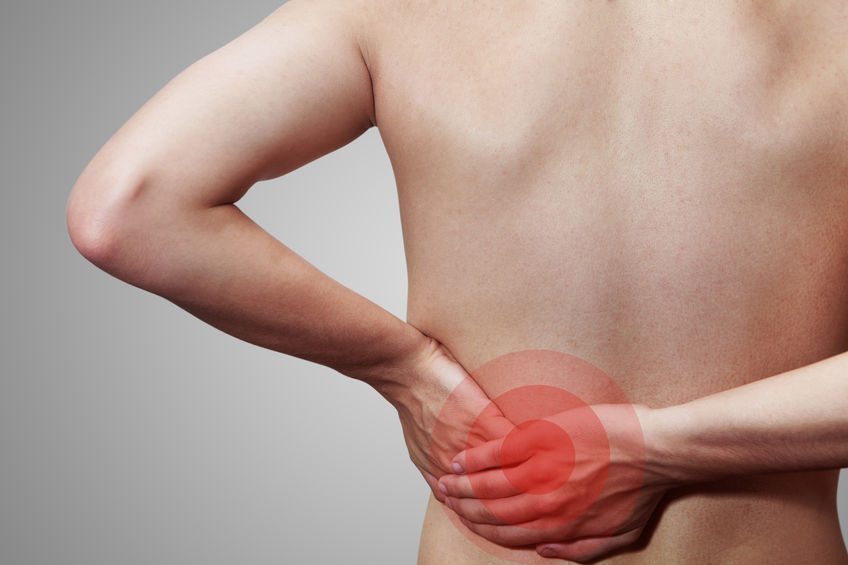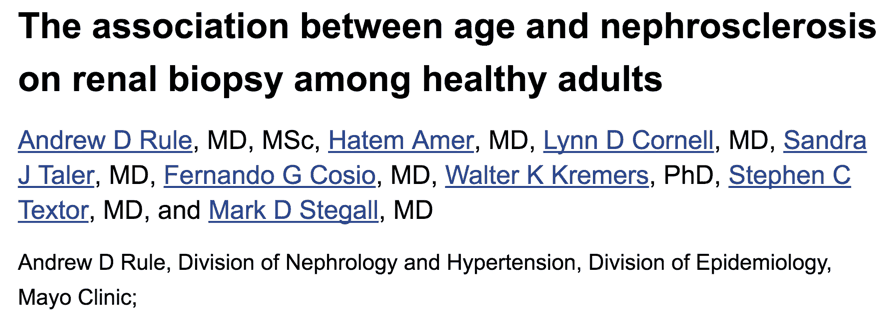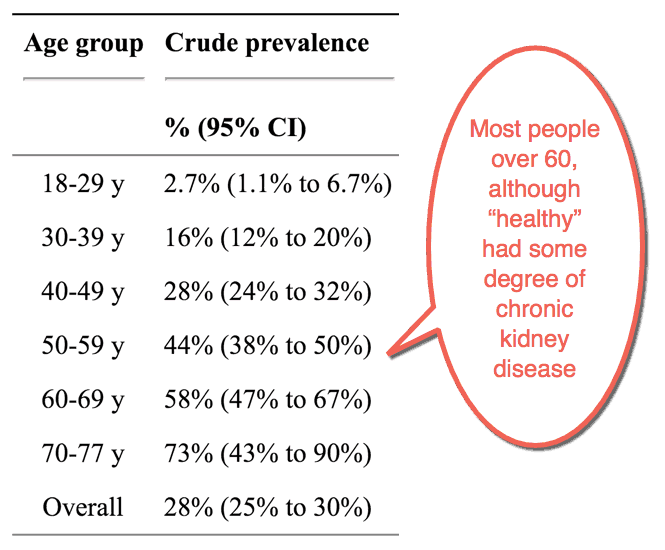
One of the big mysteries of aging is the way the kidneys tend to become fibrotic.
There was a recent study of kidney donors.
This allowed researchers to see the medical condition of over 1000 people’s kidneys.
And the kidneys were in various age ranges.
These were not sick kidneys — they were normal kidneys.
It’s quite a puzzle.
But it’s a puzzle that we are up to here at the Cookster’s (me, Matt Cook’s) daily medical discoveries.
 What we’re looking for here is evidence of chronic kidney disease.
What we’re looking for here is evidence of chronic kidney disease.
That means that the kidneys are not filtering our blood very well.
So toxins pile up in the blood.
That means that every cell in the body gets poisoned.
It’s as if you put the garbage in the can, but never take it out to the curb.
The garbage just piles up in your kitchen.
That’s the way it is with waste products in our blood if our kidneys aren’t doing their job.
This is the first study to show what happens in so-called “healthy” kidneys.
Previously, it was thought that people’s kidneys function pretty well as they got older.
But now we know differently.
The statistics are pretty striking.
Remember — these are healthy KIDNEY DONORS, not sick people!
 The researchers were mystified about these results.
The researchers were mystified about these results.
But I think we can figure it out right here.
Let’s look at what causes this kidney disease.
What we’re talking about here is nephrosclerosis.
This means the hardening of the kidneys.
It seems to be quite universal.
But, do you have to suffer from kidney disease as you get older?
 Aldosterone is a hormone that is produced from cholesterol.
Aldosterone is a hormone that is produced from cholesterol.
And aldosterone has a very important role in causing fibrosis of the kidneys and the heart.
It is extremely important in maintaining the right balance of minerals in our body.
It’s especially crucial in regulating potassium and sodium.
Aldosterone causes the kidneys to do a number of things.
It makes them hold water.
It causes them to increase blood pressure.
It helps to conserve sodium.
And it works to excrete potassium.
But too much aldosterone over time increases fibrosis in the kidneys and the heart as the study shows.
Aldosterone causes thrombosis leading to fibrosis by increasing PAI-1 expression.
Perhaps we get too much aldosterone because of poor diet.
We don’t have enough salt in our diet.
We have not enough potassium.
We drink too much water.
Or maybe we don’t drink enough water.
But there seems to be a solution to excess aldosterone.
If we can combat this excess aldosterone, then perhaps we can also rollback the kidney disease that it causes.
One way to combat aldosterone would be to use antagonists.
Aldosterone antagonists also help prevent fibrosis in the heart.
So you can imagine that big Pharma has dedicated huge resources to developing aldosterone antagonist medications.
And indeed, they have.
These medications have some serious side effects and may not be good for long-term use.
But our bodies evolved over tens of thousands of years — there must be a mechanism to combat this issue!
Isn’t isn’t there a hormone in the body that can counteract excess aldosterone naturally?
Perhaps if we take that hormone, we can reverse kidney disease?
Maybe we can reverse heart disease, or at least stop it from progressing?
Do we have such a hormone?
Of course, we do!
It’s called progesterone.
Since 1958, it has been known that progesterone antagonizes aldosterone.
Progesterone reduces aldosterone without affecting sodium or potassium.
Progesterone is the miracle drug for fighting aldosterone.
In fact, we probably have too much aldosterone because our estrogen levels way too high now.
Estrogen levels are higher nowadays due to all the environmental xenoestrogen’s and estrogens in our food.
High estrogen levels lead to low progesterone levels.
This then leads to high aldosterone levels.
High aldosterone levels create chronic kidney disease and heart disease.
You can see the progression.
If you’re male, you do have to be careful of progesterone.
You might start with allopregnanolone.
Allopregnanolone is a so-called pro-hormone that the body can turn into progesterone if it wants to.
I find allopregnanolone has a very similar effect to progesterone, but it’s a lot safer for men to take.
Because large amounts of progesterone can be emasculating for man.
However it probably doesn’t take too much progesterone to fight aldosterone.
And, if you take allopregnanolone, you avoid the effects of too much progesterone.
Plus, you still may be getting the benefit of fighting back against kidney disease.
Can the kidneys recover from this chronic kidney disease nephrosclerosis?
We just don’t know.
I suspect so.
Meanwhile I’m taking my allopregnanolone.
Citations
The association between age and nephrosclerosis on renal biopsy among healthy adults
http://www.ncbi.nlm.nih.gov/pmc/articles/PMC2864956/
Aldosterone modulates plasminogen activator inhibitor-1 and glomerulosclerosis in vivo
https://www.researchgate.net/profile/Douglas_Vaughan/publication/12348823_Brown_N.J._et_al._Aldosterone_modulates_plasminogen_activator_inhibitor-1_and_glomerulosclerosis_in_vivo._Kidney_Int._58_1219-1227/links/54cba89c0cf298d656585ab4.pdf
NHIBITION OF THE SODIUM-RETAINING INFLUENCE OF ALDOSTERONE BY PROGESTERONE
http://press.endocrine.org/doi/abs/10.1210/jcem-18-11-1237
See this for more on Aging and Kidneys, and see more on Anti-Aging, and for more information see effects of drugs on kidney.
